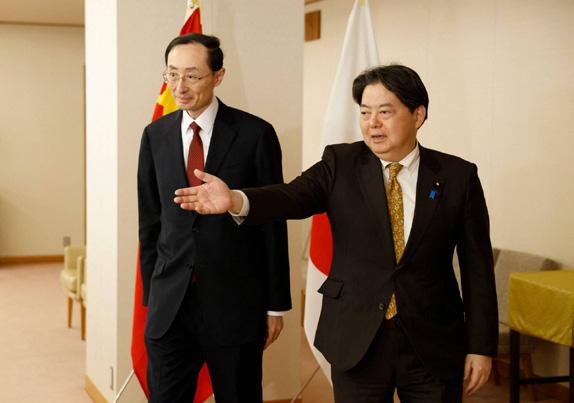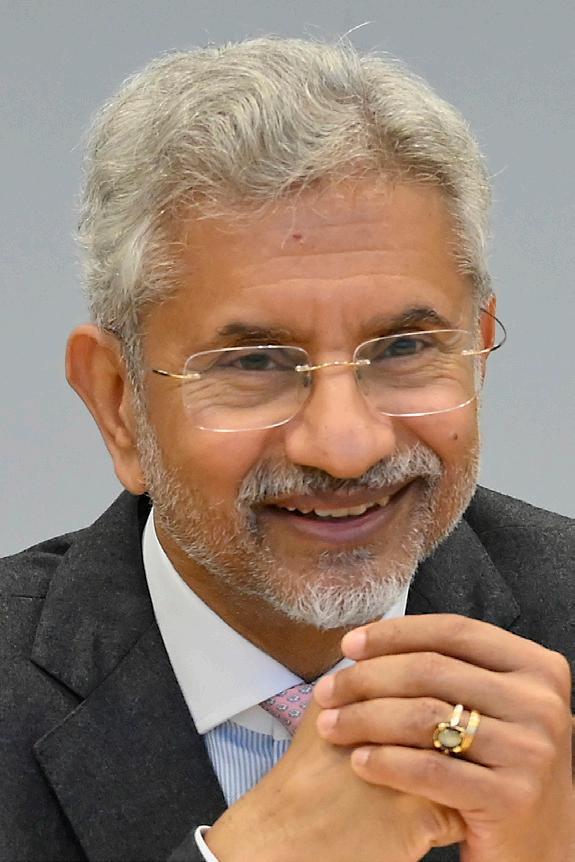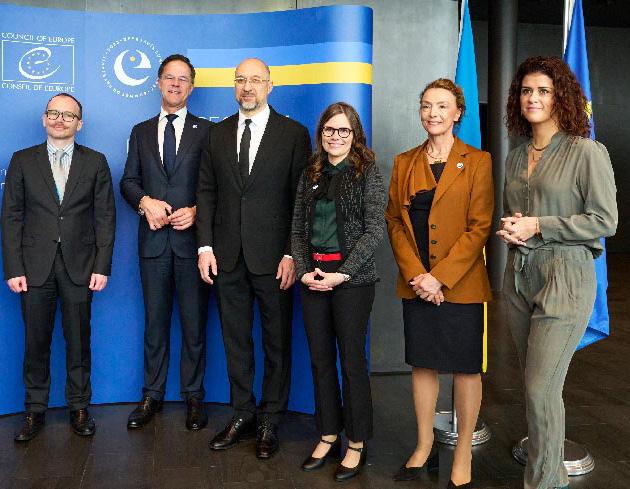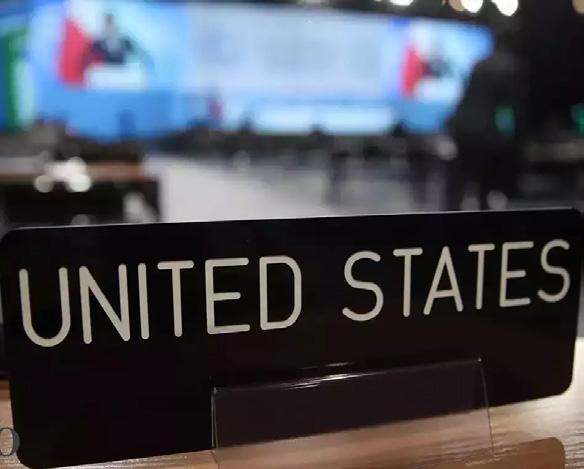
8 minute read
WORLD THIS WEEK
In collaboration with National Institute for Advanced Studies, Bengaluru Authored by Harini Madhusudan, Rashmi Ramesh, Akriti Sharma, Ankit Singh, Padmashree Anandhan, Anu Maria Joseph, Femy Francis, Rishika Yadav, Jerry Franklin, Sreeja J S, Immaculine, R B Nithyashree, Lakshmi Parimala, Taffy Tonia, Subkish S and Melvin George
Japan: Japan and China Initiate First Use of New Military Hotline
Advertisement

On 16 May, following lengthy negotiations to establish a communication channel, Japan and China employed a recently established military hotline for the first time, as confirmed by their respective defence ministries. Japanese Defense Minister Yasukazu Hamada engaged in a 20-minute conversation with his Chinese counterpart, Mr Li Shangfu, as reported by Tokyo's ministry. Discussions encompassed security concerns between the two nations, including the situation in the East China Sea, with Minister Hamada stressing the importance of open dialogue, particularly during strained Japan-China relations. Japan, cautious of China's increasing military capabilities, has publicly objected to Chinese vessel presence near disputed territories and regions like Okinawa.
India: The vision of the IndoPacific is a reality in the 21st century, says the external affairs minister

On 12 May, attending the 6th Indian Ocean Conference in Dhaka, External Affairs Minister Dr S. Jaishankar highlighted the growing reality of the Indo-Pacific. He stated that the materialization of the Indo-Pacific marks a transition from the framework of 1945. On his two-day visit to Dhaka, Mr Jaishankar held bilateral discussions with PM Hasina and his counterpart Dr AK Abdul Momen. Owing to the upcoming elections in Bangladesh, Mr Jaishankar’s visit stands significant, as there is a concern in Bangladesh regarding India’s support for PM Hasina. Speaking at the Indian Ocean Countries Conference (IOCC), Ms Hasina emphasized the need for ‘maritime diplomacy’ and promoting the ‘culture of peace’ in the IOR and sought international support in the repatriation of the Rohingyas.
India: Operation Karuna continues to be the first responder in the region

On 18 May, three Indian Navy ships arrived in Myanmar, being the first naval ships to arrive at Yangon with relief material. This was carried out as a part of ‘Operation Karuna’ launched by the Indian government to assist the cyclone-hit Myanmar. The three ships, INS Shivalik, INS Kanorta and INS Savitri have been deployed, carrying more than 40 tonnes of Humanitarian and Disaster Relief (HADR) material, including emergency food items, tents, portable generators, clothes, water pumps, medicines, tarpaulins, hygiene and sanitary items, wheelchair, face masks etc. Another ship, INS Gharial was deployed on 19 May which included emergency medicines and medical kits. Cyclone Mocha hit Bangladesh and Myanmar, causing widespread destruction and killing hundreds.
Pakistan: Opening new Border marketplace, Pakistan-Iran cooperation
On 18 May, Prime Minister Shehbaz Sharif and Iranian President Seyed Ebrahim Raisi inaugurated a new marketplace called the Mand-Pishin border sustenance marketplace. They have also established the PolanGabd electricity transmission line. A statement by the Foreign Office said: “The Polan-Gabd electricity transmission line plays a pivotal role in meeting the energy needs of the region, including households and businesses, by bringing in additional 100 MW electricity from Iran.” The trade volume between the two countries is around USD 2 billion.
The opening of the border will make it easier for goods and people to move between the two countries, boosting economic cooperation. Pakistan also highlighted the importance of opening new border markets and completing the long-delayed Pakistan-Iran gas pipeline for energy cooperation.
Israel: Palestine's President Abbas requests the cancellation of Israel’s UN membership
On 15 May, Palestinian President Mahmoud Abbas prompted the UN to revoke Israel's membership until it ceases its attack and complies with UN resolutions at the UN celebration of the flight of hundreds of thousands of Palestinians after Nakba (Catastrophe of 1948 for Palestinians). Abbas added that Nakba did not start in 1948 and it did not stop after that date. Further, Rosemary DiCarlo, the UN’s undersecretarygeneral for political affairs and peacebuilding, reiterated the UN’s “clear position” in wanting the end of Israel’s occupation of Palestinian territories. Despite that, Israel’s Foreign Minister iterated that they will fight the ‘Nakba’ lie with full strength and won’t allow the Palestinians to continue to spread lies and distort history.
Europe: African countries plan Russia-Ukraine peace process
On 16 May, South African President Cyril Ramphosa said that African heads of State will visit Moscow and Kyiv to propose their peace plan in a briefing. The meeting took place in Cape Town where Singaporean Prime Minister Lee Hsien Loong was also present. Zambia, Senegal, the Republic of Congo, Uganda, Egypt along with South Africa will be part of the mediation process. He added that he met with Russian President Vladimir Putin and Ukrainian President Volodymyr Zelenskyy on 12 May and they both agreed to host the African leaders.
Europe: Council of Europe creates a register of damage for Ukraine

On 17 May, Council of Europe leaders announced the creation of the Register of Damage for Ukraine through an Enlarged Partial Agreement in its summit between 16 and 17 May in Reykjavik. European Union and 44 other countries have either joined or expressed their intention to join the Register until now.
According to Icelandic Prime Minister Katrín Jakobsdóttir, this register is crucial to make Russia accountable for its war crimes in Ukrainian territory and a strong message of support to Ukraine. The Register is initially for three years to record damage, loss, and injury caused by the Russian aggression to serve as a record of evidence and claims for any future international compensatory mechanism for the victims of the war. Ukrainian Prime Minister Denys Shmyhal expressed his gratitude and appreciation to the Council of Europe. He welcomed the Register of Damage and urged other countries to join.
The US: Anti-abortion groups file lawsuit against abortion pill On 17 May, the panel of three judges at the US 5th Circuit Court of Appeals hammered the Food and Drug Administration and a pharmaceutical company during arguments over the abortion pill mifepristone. The case was filed by the Alliance for Hippocratic Medicine, a group of anti-abortion doctors seeking to remove mifepristone from the US market. The outcome of the hearing might determine whether women continue to have access to what has become the most prevalent type of abortion in the United States. The decision was expected to be made as the arguments concluded. Once a decision is made, it is likely to be appealed to the US Supreme Court.
The US: Republican states to suffer the most in the US debt ceiling battle

On 18 May, Reuters reported that Republican-leaning states like Louisiana stand to lose more than Democratic-leaning states under the spending cuts backed by House Republicans. A Republican US Representative, Clay Higgins has been a vocal advocate for spending cuts in Washington, while his constituents in Louisiana rely heavily on federal dollars. He said: "While devoting myself to restoring fiscal sanity in Congress, I am a practical man and I follow the rules of Congress as I serve my constituents,". He has been instrumental in securing disaster aid and funding for various projects in his district. He has voted against the 2021 infrastructure package but has secured USD 50 million for two local hospitals and USD 9 million to build a holding pen for the muck dredged up from the channel that connects the port to the Gulf of Mexico. However, some local leaders are reluctant to criticize him for his push for spending cuts in the face of so much need.
The US: Biden Administration
USD 11 billion in funding to promote renewable energy in rural communities
On 18 May, US Department of Agriculture Secretary Tom Vilsack announced a USD 11 billion investment to bring affordable clean energy to rural communities through two programs, announced by Tom Vilsack. He said: “Rural electric cooperatives, renewable energy companies, and electric utilities will be able to apply for funding”.The Empowering Rural America program and the Powering Affordable Clean Energy program will provide affordable clean energy to vulnerable, disadvantaged, and Indigenous communities, but there is tension between building a clean energy infrastructure and mining the materials needed for it. The ERA Program and Rural Energy for America Program could have a significant impact on rural America, with funding from the Inflation Reduction Act.
The US: Department of Justice targeting cryptocurrency exchanges

reported that The US Department of Justice (DOJ) is targeting crypto companies that engage in crimes themselves or allow crimes like money laundering to happen, according to Eun Young Choi, director of the National Cryptocurrency Enforcement Team (NCET). The DOJ is targeting crypto companies that engage in crimes themselves or allow crimes like money laundering to happen.
About the Authors
Harini Madhusudan, Rashmi Ramesh, Akriti Sharma and Ankit Singh are PhD scholars in the School of Conflict and Security Studies at the National Institute of Advanced Studies. Padmashree Anandhan, Anu Maria Joseph, and Femy Francis are Research Associates at NIAS. Rishika Yadav, Jerry Franklin, Sreeja J S, Immaculine, R B Nithyashree, Lakshmi Parimala, Taffy Tonia, Subkish S and Melvin George are Research Interns at NIAS.
The report has been modified by India News for space considerations.










